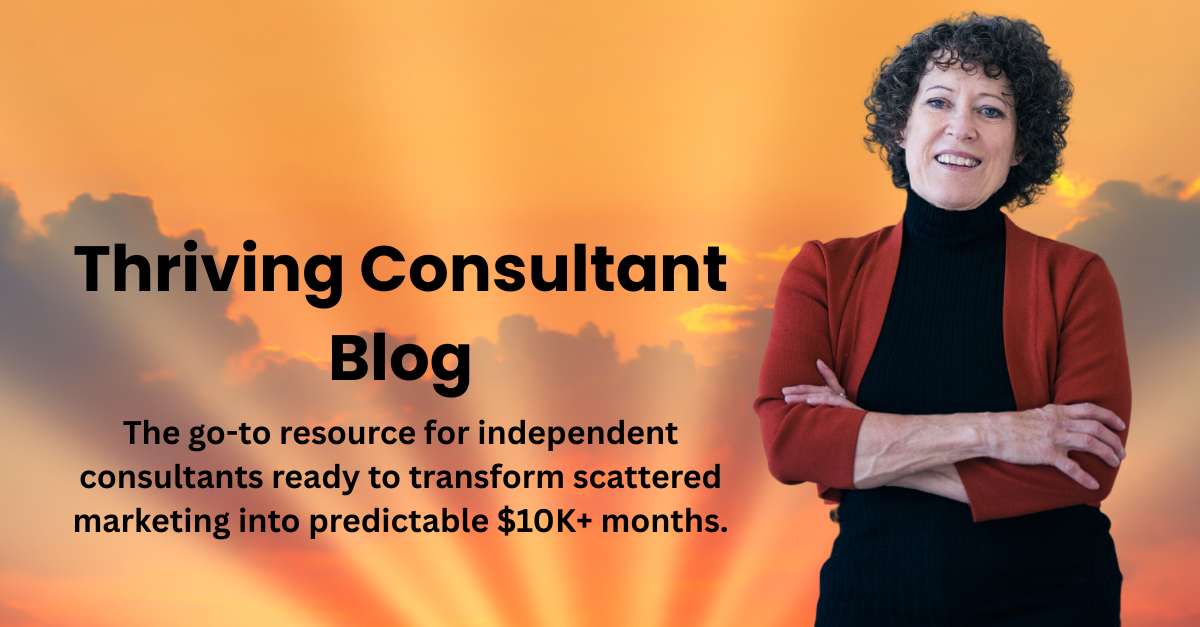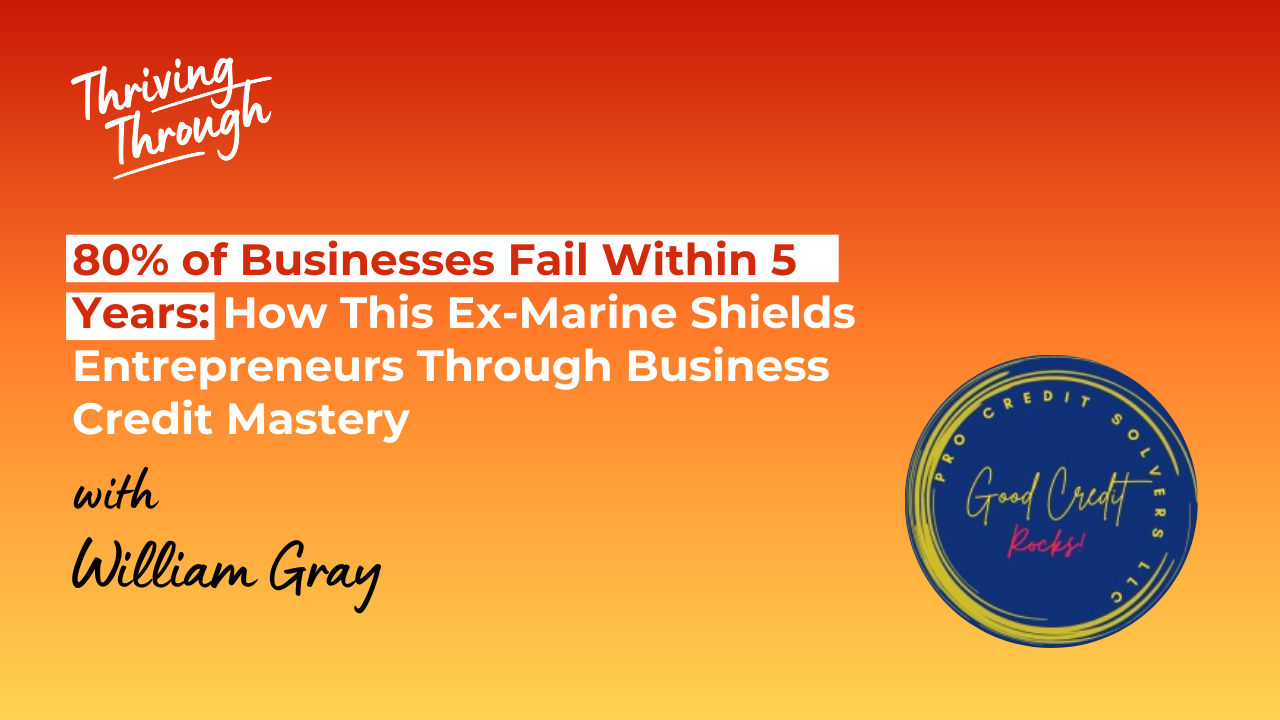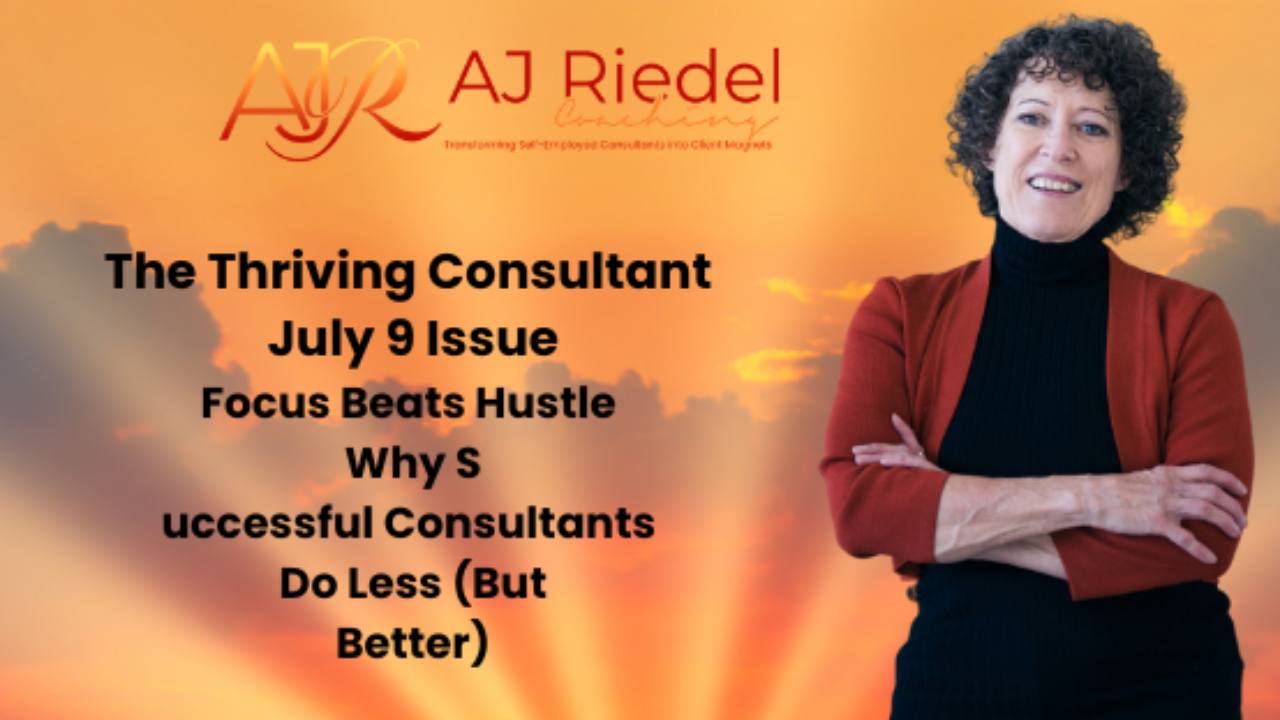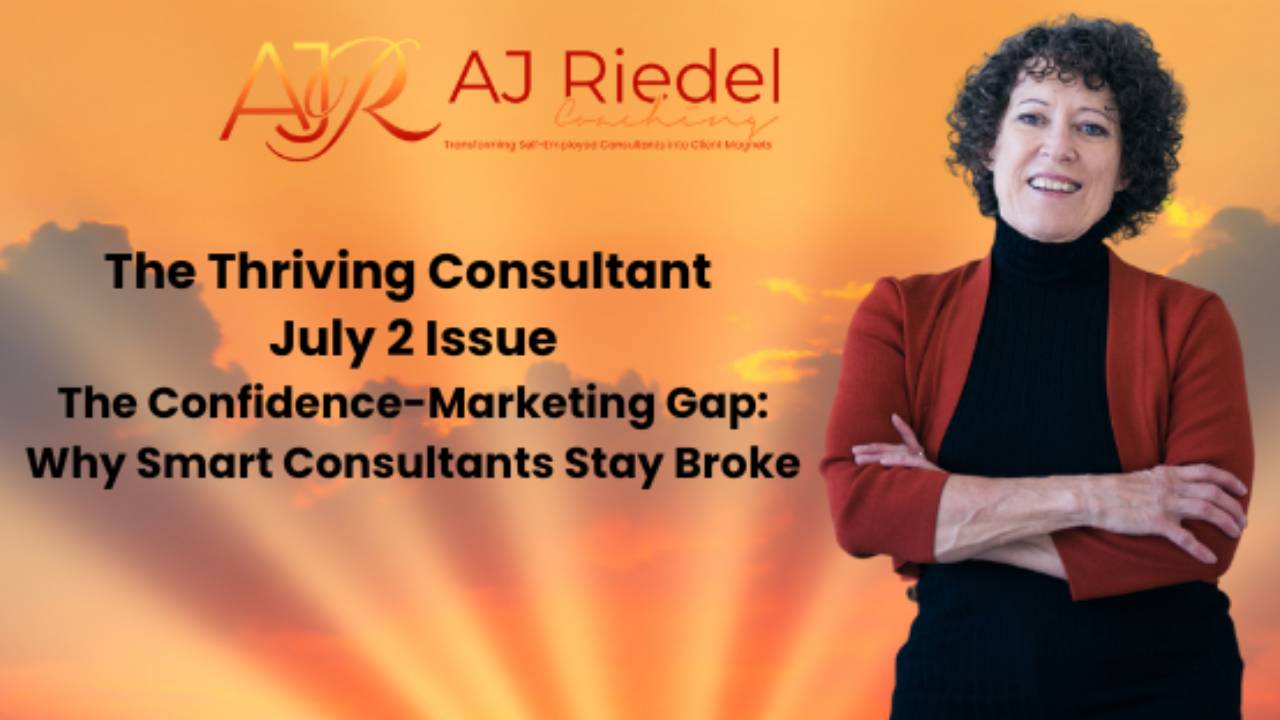June 4, 2025
TL;DR
• Food-for-Thought: Stop chasing marketing tactics and start building systems. The most successful consultants have strategic patience — they give strategies adequate time to prove themselves, focus on building relationships over conversions, and measure what actually drives revenue.
• Blog Post: Expert consultants often struggle with empty calendars because they lack proper marketing foundations. Success requires focusing on four pillars: brand authority, lead generation, prospect conversion, and prospect nurturing — not jumping between random tactics.
• Podcast: William's systematic approach to lead generation offers valuable lessons: test strategies for adequate time (3 months), track data at every stage, stay flexible but patient, and focus on building genuine rapport rather than perfecting sales techniques.
Ready to diagnose what's holding back your marketing? Take the Consultant's Marketing Scorecard to discover your biggest blind spots and get your personalized roadmap.
Food-for-Thought: The Marketing Foundation Most Consultants Never Build
My recent interview with William Gray for the Thriving Through podcast and this week's blog post reveal a fundamental truth about consultant marketing that most of us get backwards.
The first comes from William, who spent three months methodically testing virtual assistants for lead generation before pivoting to paid advertising. The second highlights why so many expert consultants find themselves with empty calendars despite trying every marketing tactic they can find.
Both stories point to the same underlying issue: we're obsessed with tactics when we should be building systems.
The Seduction of the Quick Fix
There's something intoxicating about discovering a new marketing tactic. LinkedIn automation tools promise to fill your pipeline overnight. Cold email templates guarantee 30% response rates. Content marketing frameworks pledge to position you as a thought leader in 90 days.
We collect these tactics like trading cards, always searching for the magic combination that will finally solve our business development challenges. But here's what I've observed after working with hundreds of consultants: the most successful ones aren't the ones with the most tactics — they're the ones with the most patience.
The Compound Effect of Boring Consistency
The consultants I know who never worry about their next client all share one trait: they're almost boring in their consistency. They've identified their core marketing activities, refined them relentlessly, and stuck with them long enough to build real momentum.
They understand that brand authority isn't built through viral LinkedIn posts but through hundreds of valuable interactions over months and years. They know that lead generation isn't about finding the perfect channel but about becoming indispensable within whatever channel they choose to dominate.
Most importantly, they've learned that prospect conversion isn't about perfecting sales scripts but about building genuine rapport with people who face the same challenges they once faced themselves.
Your Next Step
The difference between consultants who struggle with marketing and those who thrive isn't talent or knowledge — it's approach. Stop collecting tactics and start building systems. Your expertise deserves a marketing foundation as solid as the solutions you deliver to clients.
📊 NEW BLOG POST: Stop Spinning Your Marketing Wheels: Why Expertise Isn't Enough

Many skilled consultants find themselves trapped in a frustrating paradox: despite years of experience and proven results, their calendars remain frustratingly empty of qualified discovery calls. The culprit isn't lack of expertise — it's a flawed marketing foundation.
The Real Problem Behind Failed Marketing Efforts
Most consultants make three critical mistakes that doom their marketing from the start. They treat consulting like a product business when relationship-based services require entirely different approaches. They chase vanity metrics like followers and website traffic instead of focusing on revenue-driving activities. And they spread themselves thin across multiple channels rather than dominating one strategic approach.
This scattered approach creates more than just wasted time and money — it erodes confidence and prevents consultants from fully committing to current client work. When you're constantly worried about your next client, that desperation becomes palpable to premium prospects, making you less attractive to the very clients you want to serve.
A Strategic Framework for Consultant Marketing
The solution lies in building marketing efforts around four foundational pillars that separate successful consultants from struggling ones:
- Brand Awareness & Authority: Positioning yourself as the recognized expert in your field rather than remaining invisible to prospects who need you most
- Lead Generation: Consistently attracting qualified prospects who actively want to work with you
- Prospect Conversion: Smoothly transforming interested prospects into paying clients through effective discovery processes
- Prospect Nurturing: Maintaining top-of-mind awareness with prospects who aren't ready to buy immediately
The consultants who break through aren't necessarily more talented or knowledgeable about marketing tactics. They're simply more strategic, more focused, and more committed to building their efforts on solid foundations rather than jumping from tactic to tactic without a cohesive strategy.
🎙️ NEW PODCAST EPISODE: Lead Generation Lessons: Testing, Tracking, and Building Genuine Rapport

In this week's episode of "Thriving Through" podcast, I interview William Graham, a business credit and lending expert who's on a mission to help entrepreneurs beat the staggering business failure statistics.
William shares his systematic approach to business development that's worth studying. After testing virtual assistants for lead generation over three months, he's now pivoting to paid advertising — demonstrating the importance of giving strategies adequate time while staying flexible.
His philosophy is refreshingly practical: "Try things, give them some time like 3 months is a good timeframe. Put your best effort into it, give it a try, but you're not married to it." This balanced approach prevents both premature abandonment of promising strategies and stubborn persistence with failing ones.
Relationship-First Sales Strategy
What sets William apart isn't sales prowess but his focus on authentic connection. "People don't like to be sold to... it's about building a rapport, you know, just letting people know you understand." His method involves getting prospects to discuss their projects and challenges, then positioning himself as someone who truly grasps their situation. His background as a real estate investor helps him relate naturally to many clients.
The Power of Data-Driven Marketing
William's CRM system tracks every stage of his sales funnel, providing crucial insights most consultants miss. "With my CRM, I can actually track the data. And so what I'm able to do is see how long somebody has been in that funnel, when they went into the funnel, did they bounce out, or did they go through to completion?" This visibility allows him to identify exactly where prospects drop off and systematically refine his approach.
The takeaway for consultants: combine genuine relationship-building with rigorous data tracking. Test marketing strategies with patience but not blind loyalty, and remember that understanding your prospects' challenges matters more than perfecting your pitch.





Responses